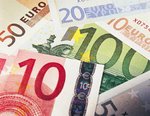The London Stock Exchange is one of the world’s oldest stock exchanges and can trace its history back more than 300 years. Starting life in the coffee houses of 17th century London, the Exchange quickly grew to become the City’s most important financial institution. Over the centuries following, the Exchange has consistently led the way in developing a strong, well-regulated stock market and today lies at the heart of the global financial community. We are proud of our long history that has helped to build our reputation today. Here are some of the milestones in the story of the London Stock Exchange.

1698
John Castaing begins to issue “at this Office in Jonathan’s Coffee-house” a list of stock and commodity prices called “The Course of the Exchange and other things”. It is the earliest evidence of organised trading in marketable securities in London.
1698
Stock dealers are expelled from the Royal Exchange for rowdiness and start to operate in the streets and coffee houses nearby, in particular in Jonathan’s Coffee House in Change Alley.
1720
The wave of speculative fever known as the “South Sea Bubble” bursts.
1748
Fire sweeps through Change Alley, destroying most of the coffee houses. They are subsequently rebuilt.
1761
A group of 150 stock brokers and jobbers form a club at Jonathan's to buy and sell shares.
1773
The brokers erect their own building in Sweeting’s Alley, with a dealing room on the ground floor and a coffee room above. Briefly known as “New Jonathan’s”, members soon change the name to “The Stock Exchange”.
1801
On 3 March, the business reopens under a formal membership subscription basis. On this date, the first regulated exchange comes into existence in London, and the modern Stock Exchange is born.
1802
The Exchange moves into a new building in Capel Court.
1812
The first codified rule book is created.
1836
The first regional exchanges open in Manchester and Liverpool.
1845
More speculative fever – this time “Railway mania” – sweeps the country.
1854
The Stock Exchange is rebuilt.
1876
A new Deed of Settlement for the Stock Exchange comes into force.
1914
The Great War means the Exchange market is closed from the end of July until the new year. The Stock Exchange Battalion of Royal Fusiliers is formed – 1,600 volunteered, 400 never returned.
1923
The Exchange receives its own Coat of Arms, with the motto “Dictum Meum Pactum” (My Word is My Bond).
1939
The start of World War Two. The Exchange is closed for 6 days and reopens on 7 September. The floor of the House closes for only one more day, in 1945 due to damage from a V2 rocket – trading then continues in the basement.
1972
Her Majesty the Queen opens the Exchange's new 26-storey office block with its 23,000sq ft trading floor.
1973
First female members admitted to the market. The 11 British and Irish regional exchanges amalgamate with the London exchange.
1986
Deregulation of the market, known as “Big Bang”:
Ownership of member firms by an outside corporation is allowed.
All firms become broker/dealers able to operate in a dual capacity.
Minimum scales of commission are abolished.
Individual members cease to have voting rights.
Trading moves from being conducted face-to-face on a market floor to being performed via computer and telephone from separate dealing rooms.
The Exchange becomes a private limited company under the Companies Act 1985.
1991
The governing Council of the Exchange is replaced with a Board of Directors drawn from the Exchange's executive, customer and user base. The trading name becomes “The London Stock Exchange”.
1995
We launch AIM – our international market for growing companies.
1997
SETS (Stock Exchange Electronic Trading Service) is launched to bring greater speed and efficiency to the market. The CREST settlement service is launched.
2000
We transfer our role as UK Listing Authority with HM Treasury to the Financial Services Authority (FSA). Shareholders vote to become a public limited company: London Stock Exchange plc.
2001
We list on our own Main Market in July. We begin our 200th anniversary celebrations.
2003
We create EDX London, a new international equity derivatives business, in partnership with OM Group. We acquire Proquote Limited, a new generation supplier of real-time market data and trading systems.
2004
We move to brand new headquarters in Paternoster Square, close to St Paul's Cathedral.









